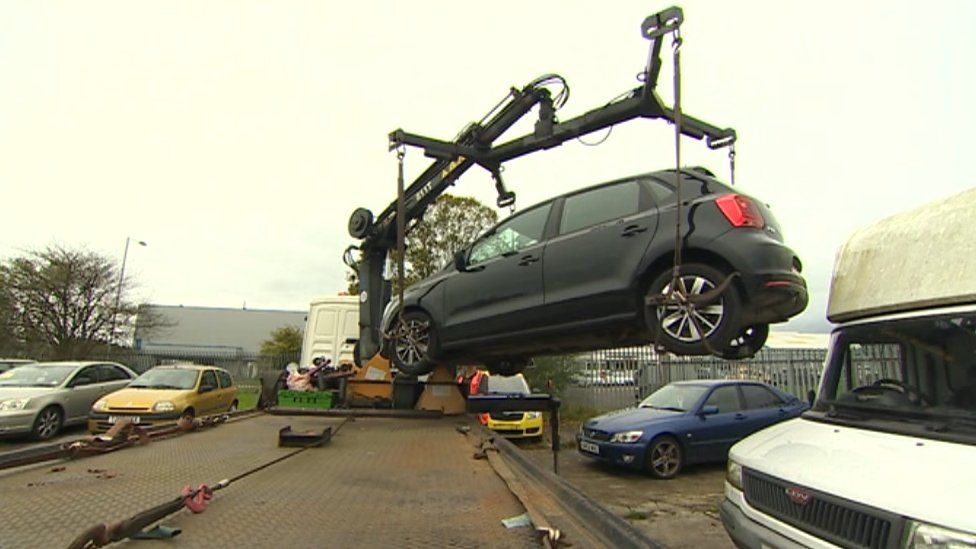Abandoned and untaxed cars set for clampdown in Cardiff
- Published

Up to 1,000 illegally parked or untaxed vehicles could be clamped and removed in Cardiff next year under new powers.
The council could already act against illegal parking but has now taken on DVLA powers to tackle abandoned vehicles.
A report by officers said that of 1,000 abandoned cars reported in 2017 only 28 were removed.
The authority hopes the measures will also help "reduce incidents of crime, vandalism and uninsured drivers".
More than 8,500 untaxed vehicles were spotted during a recent one-day street audit of the city, a report to the environmental scrutiny committee said last week.
The council was currently owed nearly £400,000 from more than 9,000 outstanding fines against persistent offenders, some of whom could not be traced.
'Nuisance'
Councillor Caro Wild said: "This isn't about people who make little mistakes, this is about persistent offenders, people who are causing a real nuisance on our streets.
"The types you see taking parking tickets off their windscreen and throwing them on the ground because maybe their vehicles aren't registered."
Cardiff council's head of operations Matt Wakelam had previously said a crackdown could raise money for the city, but officers did not want to look "overzealous".
As well as seeking new powers, a report noted the council did not currently use its existing power to clamp and remove illegally parked vehicles, and recommended a rethink.
Cardiff is the second Welsh local authority to adopt the clamping powers after Swansea undertook the same responsibility around five years ago.
Since the start of 2017, Swansea council has clamped nearly a hundred untaxed vehicles.
A number of other councils across Wales have also expressed interest in clamping powers according to the DVLA.
The initiative could begin in January, according to the Local Democracy Reporting Service.
- Published17 October 2018
- Published7 September 2018
- Published11 October 2017
- Published21 December 2016
- Published20 July 2016